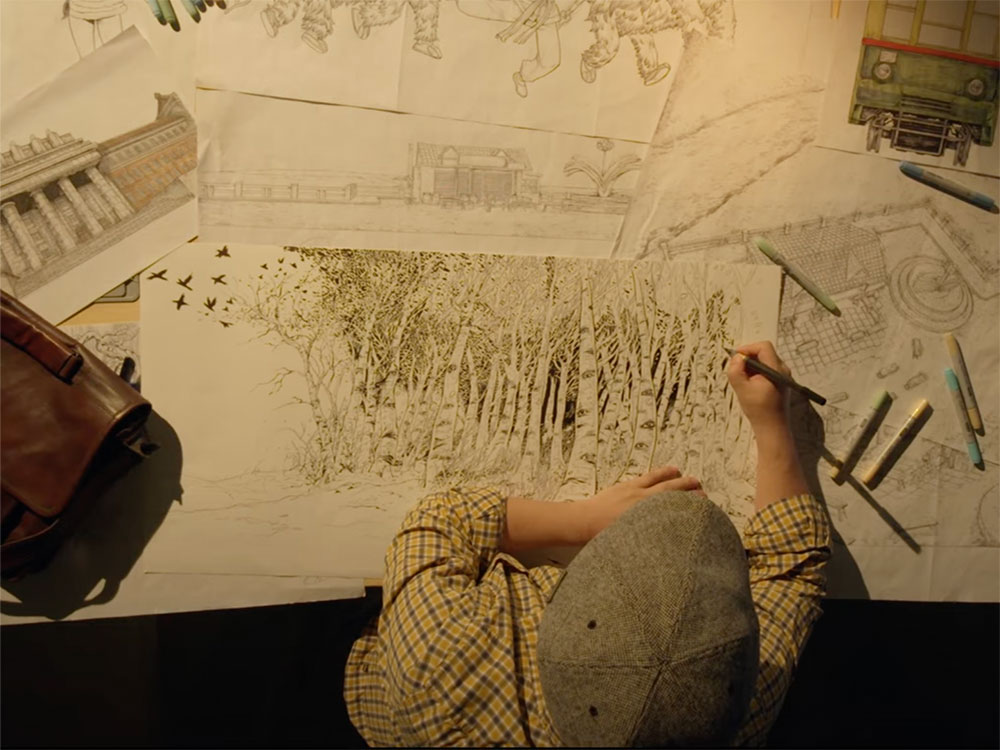In the early 2000s, a group of Falun Gong practitioners came together in an empty apartment block in the city of Changchun (a name that translates in English to “eternal spring”) in Jilin province, China, to discuss ideas for getting the message out about their faith. The practice of Falun Gong, which evolved from the Buddhist tradition, includes meditation and movement, as well as a sense of community and purpose.
As the practice grew in China during the late ’90s, it attracted greater numbers of adherents. Authorities came to view it as a more immediate threat. The government launched an orchestrated campaign of state propaganda with the purported rationale of uncovering the truth about Falun Gong. Describing it as a morally suspect, destabilizing force, the campaign worked. Even in the West, the practice came to be associated with cultish behaviour.
The reality is more nuanced than either extreme. While the practice has arguably run up against authorities, it has its own complexities, including some very conservative beliefs.
The celebrated comic artist Daxiong got involved with Falun Gong in his early 20s, citing its simplicity and ability to help people. Even as he became more devoted, an escalating number of Falun Gong practitioners were being arrested. Eventually Daxiong’s own father, fearing further repercussions, burned his son’s books.
But as Daxiong recollects in the film Eternal Spring, Falun Gong was viewed by the people who embraced it as a means to escape the soulless brutality of the state.
In that empty apartment block, the Falun Gong practitioners were eager to spread the message about a practice that felt both revolutionary and hopeful. Earlier methods, such as filling balloons with pamphlets, had had some impact. But disrupting government propaganda on a larger scale was deemed critical.
The mastermind of the group, an engineer named Liang Zhenxing, suggested hacking into state television to show a Falung Gong video. A plan was set in motion and so began one of the most curious acts of defiance ever perpetrated.
After capturing the Rogers Audience Award for Best Canadian Documentary at Toronto’s Hot Docs festival, Eternal Spring was chosen as the Canadian entry to this year’s Oscar race in the foreign language category. Jason Loftus’s animated documentary recreates the events of this remarkable story in graphic fashion.
The facts alone are riveting enough, not only for the derring-do exemplified by the participants, but also for the courage required to oppose brutal government control.
A deadly act of defiance
Loftus maintains a brisk pace throughout the film, setting up the backstory, the act itself, as well as the severe repercussions that followed. The plot unfolds like a caper film, albeit with a darker and potentially disastrous edge. It is the vividness and character of those involved that proves most indelible.
Of the people who took direct part in the action, only a couple survived. The remainder either died in prison, were tortured to death or succumbed to their injuries after being released. Although Daxiong was not directly involved, he was still forced to flee the country due to the intensity of the police crackdown.
In addition to being a Falun Gong practitioner, Daxiong was a renowned comic book artist in China. After he relocated in New York City, he illustrated panels for the Justice League of America and the Dark Horse Comics’ graphic novella Star Wars: Adventures, among others. In collaboration with the filmmaker of Eternal Spring, Daxiong recreates the story in deft strokes, functioning both as narrator and illustrator of the story.
With an artist’s eye for detail, he does more than simply recount the events that led up the hacking and its aftermath. He conjures the atmosphere in images that are more resonant than reality. The narrative of the film is largely drawn from Daxiong’s own memories as well as the recollections of other people close to the story. In drawings and animated sequences that prove as riveting as any spy caper, the artist transforms the raw events into something that approaches the mythic.
Raised in Changchun, Daxiong recreates the neighbourhood of his youth with precise detail, from the famed streetcar to the local food stands. But despite the wash of nostalgia that colours his reminiscence, the community had its fair share of darkness. Police violence was ongoing. People were arrested, attacked and beaten. Even before becoming involved with Falun Gong, Daxiong had a longstanding wariness of the police, with good reason.
One of the survivors, identified only as Mr. White in the film, is currently living in Korea. Together, the two men pool their memories to create a serpentine story that snakes around the organization of the hijacking but also brings in the larger political implications. As the pair revisit their experiences, Daxiong puts pen to paper, drawing the different members of the ad-hoc collective in the style of animé heroes.
Liang Zhenxing, an engineer by trade, emerges as the de-facto leader. A soft-spoken presence, his plan to hijack the national broadcaster with an alternative message about Falun Gong unites the group.
Liu Chengjun, another group member, was a former factory worker. Nicknamed Big Truck, he was large and strong. His rough but useful ways provide both muscle and practicality.
Meeting in secret, the group divvy up responsibilities for the act of protest. The range of skills required learning everything from how to scale power poles to the necessity of syncing the different tapes in order to reach the widest possible audience. As the members co-ordinate their efforts, the surveillance culture of the state creeps in like a mist, covering and coating everything. There’s the oppressive sense of always being watched. In bringing this atmosphere to tangible life, animation is an ideal medium.
Tender rebels
The latter half of the film delineates the aftermath of the hijacking, when the different members of the group are caught and imprisoned. A word of warning: the scenes of torture and deprivation are stark, brutal and horrifically sad. They are also necessary.
On the 20th anniversary of the hijacking, the film resurfaces not only the events, but the human sacrifice and suffering that necessitated them. In the two decades since, Chinese authorities have only expanded their control. As the events depicted in the film make explicitly clear, the reaction of the Chinese government in cracking down on Falun Gong has repercussions on a larger scale. The tactics used are the same as those currently being applied to diverse communities like the Uyghurs.
The alleged atrocities committed are legion, but what endures even more powerfully than the violence and cruelty afflicted upon those who participated is the resolve to resist. In the case of Liang Zhenxing, who was purportedly tortured to death, this dedication to the cause takes on a biblical aspect.
When another prisoner is used by the authorities to try and break Liang’s spirit, the plan backfires. Inspired to greater courage, his fellow prisoner ends up tenderly kissing Liang’s bruised and battered feet. In this moment, caught and depicted in tender fashion by Daxiong, the echoes of another rebel of faith are clear.
‘Eternal Spring’ opens in theatres on Friday, Sept. 23. ![]()
Read more: Rights + Justice, Art, Film
















Tyee Commenting Guidelines
Comments that violate guidelines risk being deleted, and violations may result in a temporary or permanent user ban. Maintain the spirit of good conversation to stay in the discussion.
*Please note The Tyee is not a forum for spreading misinformation about COVID-19, denying its existence or minimizing its risk to public health.
Do:
Do not: